What is inflammatory bowel disease?
Inflammatory bowel disease (IBD) is a group of chronic conditions that cause inflammation in your digestive tract. This ongoing inflammation can lead to symptoms like belly pain, diarrhea, fatigue and weight loss. IBD is different from irritable bowel syndrome (IBS), which does not cause inflammation or damage to the digestive system.
The two main types of IBD are Crohn’s disease and ulcerative colitis:
- Crohn’s disease can affect any part of your digestive tract, from your mouth to your anus. It often causes patches of inflammation that can extend through multiple layers of the bowel wall.
- Ulcerative colitis primarily affects the colon and rectum. It causes continuous inflammation and sores or ulcers in the innermost lining of the large intestine.
IBD is a lifelong condition with no cure. But treatments can help manage symptoms and allow you to live a full life.
Inflammatory bowel disease symptoms
Inflammatory bowel disease can cause a range of symptoms that may come and go over time. Many people experience “flares,” when symptoms get worse, followed by periods of remission when they improve or go away.
Your symptoms may vary based on the type of IBD you have and how much of your digestive tract is affected.
Common symptoms of IBD include:
- Stomach pain or cramping
- Diarrhea
- Urgent need to go
- Rectal bleeding
- Tiredness
- Unintended weight loss
- Fever
In kids and teens, IBD can also affect growth and development.
Some people with IBD may also notice symptoms outside their digestive system, such as:
- Pain or swelling in the joints
- Skin rashes or bumps
- Eye redness or discomfort
- Sores in the mouth
When to see a doctor
If you’re having ongoing digestive issues that disrupt your daily life, it’s important to talk with your primary care doctor or a gastroenterologist. Inflammatory bowel disease symptoms can be similar to other conditions, so getting the right diagnosis is key to finding relief and avoiding complications.
Early diagnosis and treatment can help reduce flares, protect your long-term health and improve your quality of life. Start by seeing a primary care provider, who can refer you to a digestive health specialist if needed.
If you’ve already been diagnosed with IBD and notice changes in your symptoms or new signs, let your doctor know. This could mean your condition is flaring or that your treatment plan needs to be adjusted.
Inflammatory bowel disease causes
Experts do not know the exact cause of IBD. Genetics are thought to play a role in Crohn’s disease, but the link is weaker in ulcerative colitis.
IBD is an autoimmune disorder, which means that an inappropriate immune system response plays a role. Researchers believe the immune system mistakenly attacks the digestive tract, which leads to inflammation.
An imbalance of healthy bacteria in the gut may be another cause of IBD.
Inflammatory bowel disease risk factors
Risk factors for inflammatory bowel disease include:
- Age: IBD can occur at any age. It often gets diagnosed in a person’s late teens and 20s, but about 25% of people with IBD develop it by their teens, and another 10% to 15% develop it after age 60.
- Family history: Having a parent, brother or sister with IBD can increase your risk
- Sex: Women have a slightly higher risk of developing Crohn’s disease, but both sexes are at equal risk for ulcerative colitis.
- Tobacco use: Crohn’s disease is strongly linked to tobacco use.
Complications
Many people with inflammatory bowel disease live full, active lives. But without proper treatment, IBD can lead to complications that affect your health and quality of life.
Common complications of Crohn’s disease and ulcerative colitis include:
- Colon cancer: Long-term inflammation in the colon increases your risk. Regular colonoscopies help catch it early.
- Joint, skin and eye inflammation: Conditions like arthritis, skin rashes and eye irritation can occur during flare-ups.
- Medication side effects: Some IBD treatments may raise your risk for infections, bone loss or high blood pressure.
- Liver disease: A rare condition called primary sclerosing cholangitis (PSC) can cause liver damage.
- Blood clots: IBD increases your risk for clots in veins and arteries.
- Dehydration: Ongoing diarrhea can lead to fluid loss, especially during flares.
- Bone loss: Long-term steroid use may weaken your bones.
Crohn’s disease may also cause:
- Bowel blockage: Inflammation can narrow the intestines and require surgery.
- Malnutrition: Poor absorption and appetite can lead to vitamin deficiencies and weight loss.
- Fistulas and anal fissures: Inflammation can cause abnormal connections or tears in the tissue.
Ulcerative colitis may also cause:
- Toxic megacolon: A rare condition where the colon swells dangerously.
- Perforated colon: A tear in the colon wall, sometimes linked to severe flares.
Early diagnosis, regular monitoring and a treatment plan tailored to your needs can help reduce the risk of complications.
How is IBD diagnosed?
Diagnosing inflammatory bowel disease involves several steps. Your doctor will review your health history, perform a physical exam, order lab tests and imaging, and use endoscopy procedures to look inside your digestive tract. This helps find the cause of your symptoms and rule out other conditions.
-
Medical history and exam
Your doctor will ask about your health history, including any past illnesses, infections, allergies and surgeries. They will also ask about your family’s health because IBD can run in families.
Be honest and detailed when describing your symptoms. IBD symptoms can change depending on which part of your digestive system is affected.
During the physical exam, your doctor may press gently on your belly to check for pain or swelling. They will listen to your abdomen with a stethoscope. Sometimes they check for fistulas or abscesses—these are tunnels or pockets that can form near the intestines and may be felt during the exam.
-
Lab tests
Lab tests play an important role in diagnosing IBD and ruling out other conditions with similar symptoms:
- Blood tests: These check for signs of inflammation, anemia (low red blood cells), infections, and nutritional problems related to IBD. Markers like C-reactive protein (CRP) and erythrocyte sedimentation rate (ESR) show inflammation levels. Blood tests also evaluate liver and kidney function.
- Stool tests: These analyze your bowel movements to detect infections from bacteria, viruses or parasites that can mimic IBD symptoms. They also measure inflammation markers like calprotectin or lactoferrin released during intestinal inflammation.
-
Imaging
Imaging tests provide pictures of your digestive system to find inflammation, blockages or other issues:
- X-ray: Often done with a contrast dye that you swallow or receive via enema, these images highlight the intestines to show blockages, narrowing or abnormal shapes.
- Computerized tomography (CT) scan: These scans create detailed cross-sectional images of your abdomen to identify inflammation, abscesses (infection pockets) or complications such as fistulas.
- Magnetic resonance imaging (MRI) scan: Using magnets and radio waves, MRI produces clear images, especially of soft tissues. It’s commonly used to examine the small intestine or detect problems near the anus and rectum without radiation.
-
Endoscopy procedures
Endoscopy allows doctors to look inside your digestive tract and collect tissue samples (biopsies) to check for inflammation or damage:
- Colonoscopy: A long, flexible, lighted tube is inserted through your anus to view your entire colon and rectum. This helps identify inflammation, ulcers, bleeding or growths. Biopsies can be taken during the exam.
- Upper GI endoscopy: A flexible, lighted tube is passed through your mouth to look at your esophagus, stomach, and the first part of your small intestine (duodenum). While it’s rare for Crohn’s disease to affect these areas, this test may be recommended if you have symptoms like nausea, vomiting, difficulty eating, or pain in your upper belly.
- Flexible sigmoidoscopy: This test uses a slender, flexible, lighted tube to examine just the rectum and sigmoid colon—the last part of your colon. It’s sometimes used instead of a full colonoscopy if the colon is severely inflamed or if only the lower part of the colon needs checking.
- Capsule endoscopy: You swallow a small capsule with a tiny camera inside. As it travels through your digestive tract, it takes thousands of pictures sent to a recorder you wear on your belt. This helps detect Crohn’s disease in the small intestine, which is hard to reach with other tests. The capsule passes naturally in your stool without pain. However, if a bowel obstruction is suspected, this test is not recommended. You may still need a biopsy to confirm the diagnosis.
- Balloon-assisted enteroscopy: This specialized test uses a scope combined with a device called an overtube. It lets the doctor see further into the small intestine, where other scopes can’t reach. This test is useful when capsule endoscopy results are unclear but a more detailed examination is needed.
Inflammatory bowel disease treatment
Treating inflammatory bowel disease usually requires a combination of approaches. The goal is to reduce inflammation, relieve symptoms and improve your quality of life. Treatment may include medications, lifestyle changes and in some cases surgery if your condition is severe or does not respond to other treatments.
Lifestyle changes
Lifestyle changes can help manage IBD symptoms and support your overall health. While they can’t cure IBD on their own, combining them with medical treatments can make a big difference.
Here are some lifestyle adjustments that may help:
- Monitor your diet: While no specific foods cause IBD, certain foods may trigger or worsen symptoms. You might feel better by avoiding high-fiber foods during flare-ups, eating smaller meals and keeping track of foods that bother you.
- Stay hydrated: Drinking plenty of water helps keep your digestive system working smoothly and prevents dehydration caused by diarrhea.
- Take supplements if needed: IBD can affect how your body absorbs nutrients. Your doctor may recommend vitamin or mineral supplements to prevent or treat deficiencies.
- Quit smoking: Smoking can worsen Crohn’s disease and make symptoms harder to control so quitting can improve your outlook.
- Manage stress: Stress doesn’t cause IBD but can make symptoms worse. Relaxation techniques, exercise and counseling may help you cope.
Medication
Medications for IBD aim to reduce inflammation and relieve symptoms. They can also help you reach remission, which is a period when you no longer experience symptoms of the disease.
- Antibiotics: Bacterial overgrowth in the intestines can worsen IBD. Antibiotics can target this overgrowth to provide relief.
- Biologic medications: These medications use living organisms to help stop the immune system from mistakenly attacking healthy tissues.
- Immune-modulating medications: Also known as immunomodulators, these medications help balance your immune system, whether it's overactive, as is the case with IBD, or underactive.
- Steroids: If you have a flareup, an episode where your IBD symptoms are more severe, steroids can provide temporary relief. You may receive a steroid injection or take a pill.
Surgery
Surgery is usually recommended when symptoms are severe and medicines aren’t working, complications like bleeding, blockages or infections happen, or there is a higher risk of colon cancer.
For Crohn’s disease, surgery may remove sections of the small or large intestine that are badly inflamed or narrowed. Crohn’s can come back in other areas, so you might need additional treatment after surgery. Surgery helps manage problems like blockages, infections or tunnels called fistulas, but it doesn’t cure Crohn’s.
For ulcerative colitis, surgery often means removing the entire colon and rectum. This can actually cure ulcerative colitis since it affects only the large intestine. After surgery, your doctor may create a new way for waste to leave your body, either with an internal pouch or an external bag.
Your care team will explain the surgery process, what to expect during recovery and how they will support you afterward.
Find specialized care for inflammatory bowel disease
At Baylor Scott & White, we offer several locations for the treatment of inflammatory bowel disease, including gastroenterology centers across North and Central Texas. Our experienced team is ready to provide personalized care to help improve your quality of life. Whether you're seeking diagnostic testing, treatment options or ongoing support, we are here to help you.
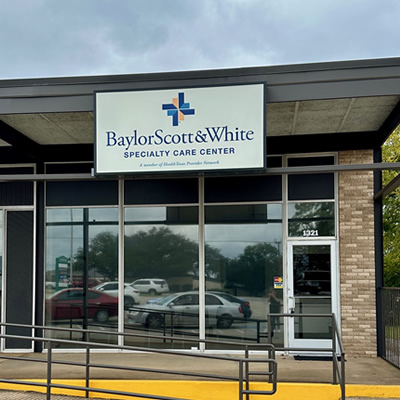
Baylor Scott & White North Texas Colon and Rectal Associates - Tyler
1321 S Beckham Ave , Tyler, TX, 75701

Baylor Scott & White Surgical Hospital - Sherman
3601 N Calais St , Sherman, TX, 75090
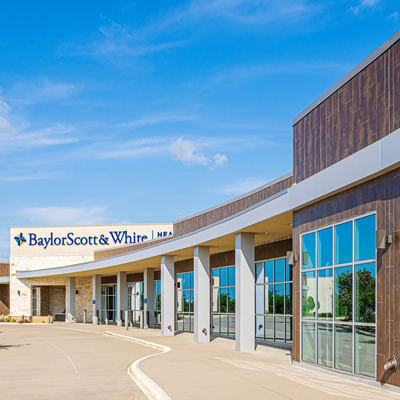
Baylor Scott & White Gastroenterology - Greenville
4400 Interstate 30 W Ste 300, Greenville, TX, 75402

Baylor Scott & White Digestive Diseases Group - Anna
450 N Standridge Blvd Ste 104, Anna, TX, 75409

Baylor Scott & White Digestive Diseases Group - McKinney
5236 W University Dr Ste 3800, McKinney, TX, 75071

Baylor Scott & White Digestive Diseases Group - McKinney
5236 W University Dr Ste 3800, McKinney, TX, 75071
- Monday: 8:30 am - 4:30 pm
- Tuesday: 8:30 am - 4:30 pm
- Wednesday: 8:30 am - 4:30 pm
- Thursday: 8:30 am - 4:30 pm
- Friday: 8:30 am - 4:30 pm

Baylor Scott & White Medical Center - McKinney
5252 W University Dr Highway 380 at Lake Forest Drive, McKinney, TX, 75071
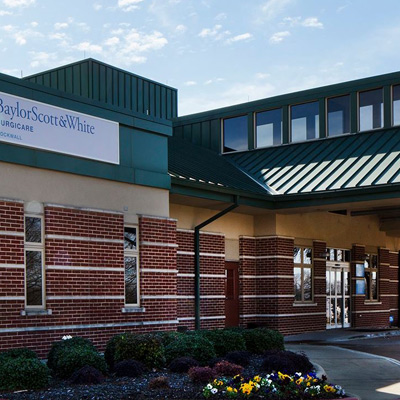
Baylor Scott & White Surgicare - Rockwall
825 W Yellowjacket Ln , Rockwall, TX, 75087
- Monday: 6:00 am - 5:00 pm
- Tuesday: 6:00 am - 5:00 pm
- Wednesday: 6:00 am - 5:00 pm
- Thursday: 6:00 am - 5:00 pm
- Friday: 6:00 am - 5:00 pm
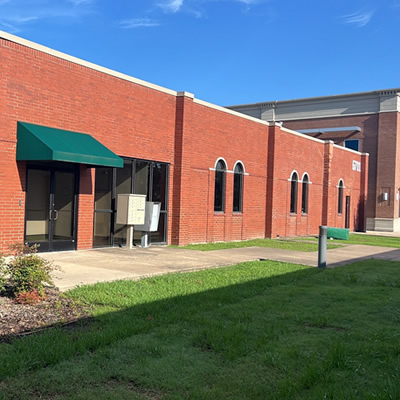
Baylor Scott & White Gastroenterology - Lake Pointe
6705 Heritage Pkwy Ste 203, Rockwall, TX, 75087
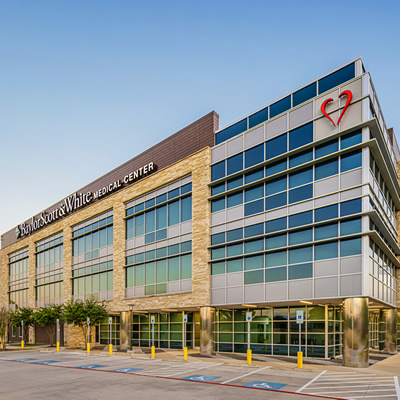
Baylor Scott & White Medical Center - Lake Pointe
6800 Scenic Dr , Rowlett, TX, 75088
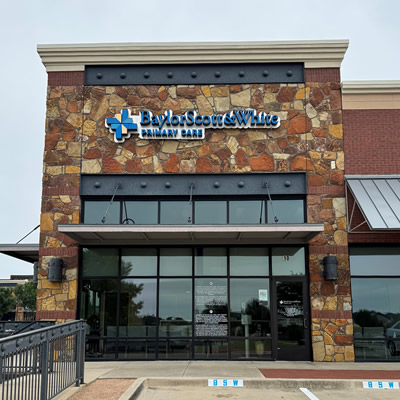
Baylor Scott & White Digestive Diseases - Prosper
111 S Preston Rd Ste 10, Prosper, TX, 75078
- Monday: 8:30 am - 4:30 pm
- Tuesday: 8:30 am - 4:30 pm
- Wednesday: 8:30 am - 4:30 pm
- Thursday: 8:30 am - 4:30 pm
- Friday: 8:30 am - 4:30 pm
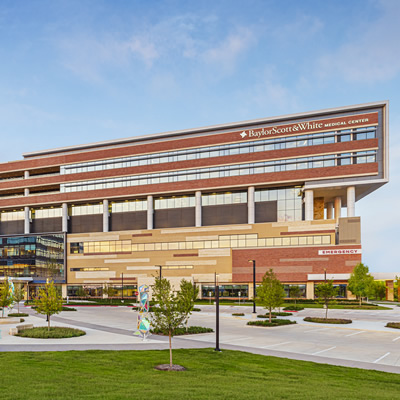
Baylor Scott & White Medical Center - Frisco at PGA Parkway
7600 Better Way , Frisco, TX, 75033

Baylor Scott & White Digestive Diseases - Centennial
4461 Coit Rd Pav 2, Ste 401, Frisco, TX, 75035
- Monday: 8:30 am - 4:30 pm
- Tuesday: 8:30 am - 4:30 pm
- Wednesday: 8:30 am - 4:30 pm
- Thursday: 8:30 am - 4:30 pm
- Friday: 8:30 am - 4:30 pm
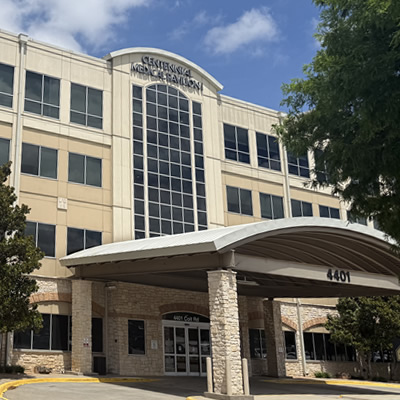
Baylor Scott & White Surgicare - Centennial
4401 Coit Rd Ste 100, Frisco, TX, 75035
- Monday: 7:00 am - 5:00 pm
- Tuesday: 7:00 am - 5:00 pm
- Wednesday: 7:00 am - 5:00 pm
- Thursday: 7:00 am - 5:00 pm
- Friday: 7:00 am - 5:00 pm

Baylor Scott & White Medical Center - Centennial
12505 Lebanon Rd , Frisco, TX, 75035

Texas Endoscopy - Independence Medical Village
8080 Independence Pkwy Ste 160, Plano, TX, 75025
- Monday: 6:00 am - 5:00 pm
- Tuesday: 6:00 am - 5:00 pm
- Wednesday: 6:00 am - 5:00 pm
- Thursday: 6:00 am - 5:00 pm
- Friday: 6:00 am - 5:00 pm
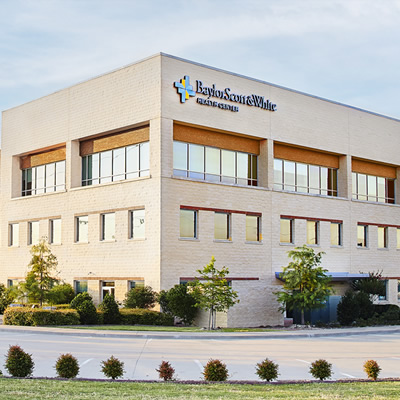
Baylor Scott & White Digestive Diseases Group - Garland
7217 Telecom Pkwy Ste 300, Garland, TX, 75044
- Monday: 8:00 am - 5:00 pm
- Tuesday: 8:00 am - 5:00 pm
- Wednesday: 8:00 am - 5:00 pm
- Thursday: 8:00 am - 5:00 pm
- Friday: 8:00 am - 5:00 pm
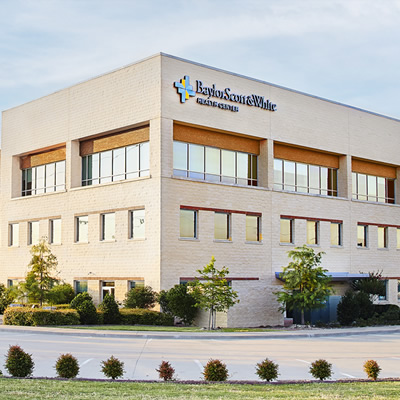
Baylor Scott & White North Texas Colon and Rectal Associates - North Garland
7217 Telecom Pkwy Ste 100, Garland, TX, 75044

Baylor Scott & White Surgicare - North Garland
7150 N President George Bush Hwy Ste 101, Garland, TX, 75044
- Monday: 6:00 am - 5:00 pm
- Tuesday: 6:00 am - 5:00 pm
- Wednesday: 6:00 am - 5:00 pm
- Thursday: 6:00 am - 5:00 pm
- Friday: 6:00 am - 5:00 pm
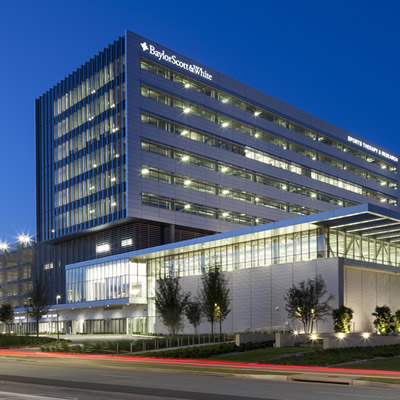
Baylor Scott & White Digestive Diseases at The Star
3800 Gaylord Pkwy Ste 910, Frisco, TX, 75034
- Monday: 8:30 am - 4:30 pm
- Tuesday: 8:30 am - 4:30 pm
- Wednesday: 8:30 am - 4:30 pm
- Thursday: 8:30 am - 4:30 pm
- Friday: 8:30 am - 4:30 pm
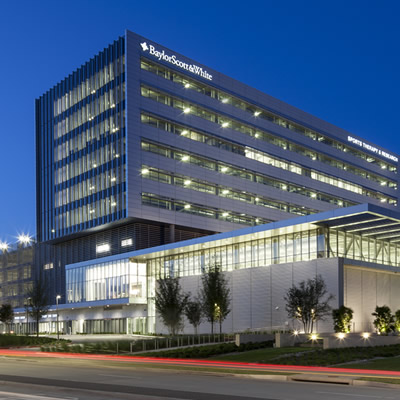
Baylor Scott & White Digestive Diseases Group at The Star
3800 Gaylord Pkwy Ste 910, Frisco, TX, 75034
- Monday: 8:00 am - 5:00 pm
- Tuesday: 8:00 am - 5:00 pm
- Wednesday: 8:00 am - 5:00 pm
- Thursday: 8:00 am - 5:00 pm
- Friday: 8:00 am - 5:00 pm
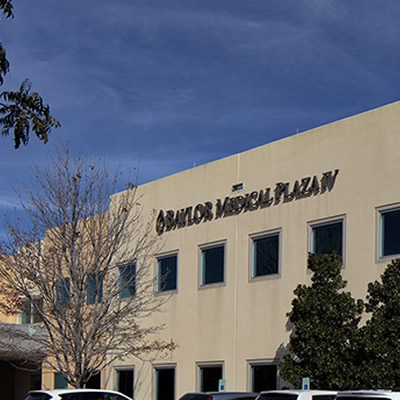
Baylor Scott & White Surgicare - Garland
530 Clara Barton Blvd Ste 100, Garland, TX, 75042
- Monday: 6:00 am - 5:00 pm
- Tuesday: 6:00 am - 5:00 pm
- Wednesday: 6:00 am - 5:00 pm
- Thursday: 6:00 am - 5:00 pm
- Friday: 6:00 am - 5:00 pm

Baylor Scott & White Medical Center - Frisco
5601 Warren Pkwy , Frisco, TX, 75034
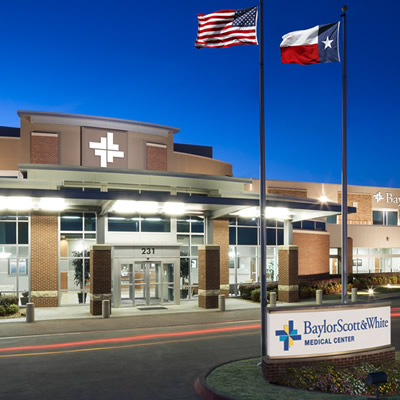
Baylor Scott & White Medical Center - Sunnyvale
231 S Collins Rd , Sunnyvale, TX, 75182
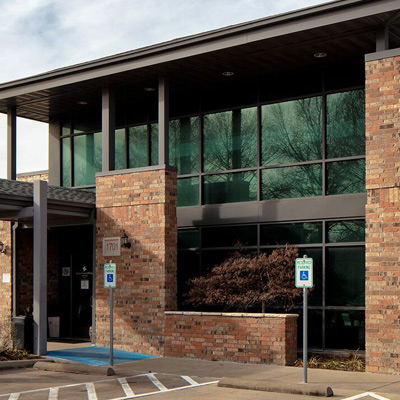
Baylor Scott & White Surgicare - Plano
1701 Ohio Dr , Plano, TX, 75093
- Monday: 6:00 am - 4:00 pm
- Tuesday: 6:00 am - 4:00 pm
- Wednesday: 6:00 am - 4:00 pm
- Thursday: 6:00 am - 4:00 pm
- Friday: 6:00 am - 4:00 pm

Baylor Scott & White Ambulatory Endoscopy Center
4708 Alliance Blvd Pavilion I, Ste 210, Plano, TX, 75093
- Monday: 7:00 am - 3:00 pm
- Tuesday: 7:00 am - 3:00 pm
- Wednesday: 7:00 am - 3:00 pm
- Thursday: 7:00 am - 3:00 pm
- Friday: 7:00 am - 3:00 pm

Baylor Scott & White Digestive Diseases Group - Plano
4708 Alliance Blvd Pavilion I, Ste 200, Plano, TX, 75093
- Monday: 8:00 am - 5:00 pm
- Tuesday: 8:00 am - 5:00 pm
- Wednesday: 8:00 am - 5:00 pm
- Thursday: 8:00 am - 5:00 pm
- Friday: 8:00 am - 5:00 pm

Baylor Scott & White Digestive Diseases and Medical Weight Loss - Plano
4716 Alliance Blvd Pavilion II, Ste 470, Plano, TX, 75093
- Monday: 8:00 am - 5:00 pm
- Tuesday: 8:00 am - 5:00 pm
- Wednesday: 8:00 am - 5:00 pm
- Thursday: 8:00 am - 5:00 pm
- Friday: 8:00 am - 5:00 pm
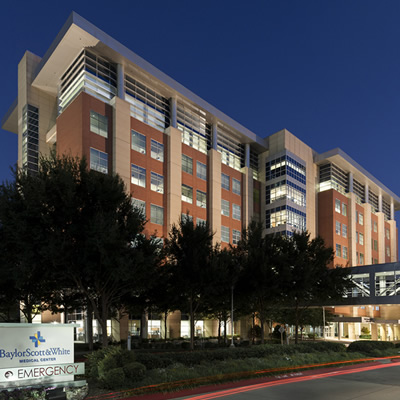
Baylor Scott & White Medical Center - Plano
4700 Alliance Blvd , Plano, TX, 75093

Texas Endoscopy - Parker Rd.
6405 W Parker Rd Ste 370, Plano, TX, 75093
- Monday: 6:00 am - 5:00 pm
- Tuesday: 6:00 am - 5:00 pm
- Wednesday: 6:00 am - 5:00 pm
- Thursday: 6:00 am - 5:00 pm
- Friday: 6:00 am - 5:00 pm

Baylor Scott & White Digestive Diseases Group - Park Cities
9101 N Central Expy Ste 300C, Dallas, TX, 75231
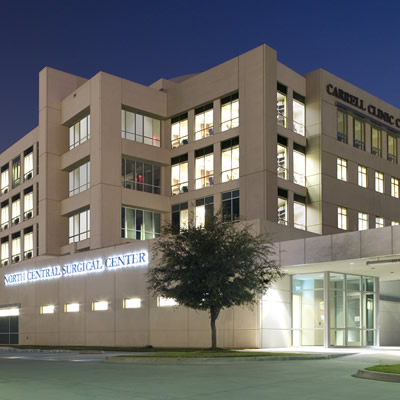
North Central Surgical Center Hospital
9301 N Central Expy Ste 100, Dallas, TX, 75231
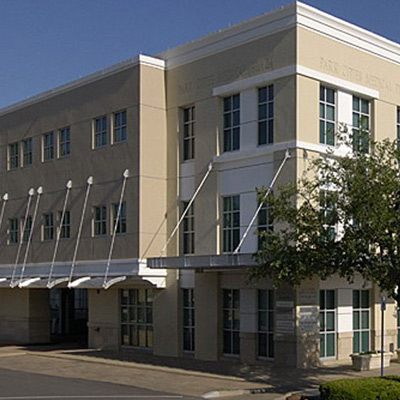
Park Cities Surgery Center
6901 Snider Plz Ste 300, Dallas, TX, 75205
- Monday: 6:00 am - 5:00 pm
- Tuesday: 6:00 am - 5:00 pm
- Wednesday: 6:00 am - 5:00 pm
- Thursday: 6:00 am - 5:00 pm
- Friday: 6:00 am - 5:00 pm

Baylor Scott & White Surgicare - Dallas
4020 Junius St , Dallas, TX, 75246
- Monday: 6:00 am - 5:00 pm
- Tuesday: 6:00 am - 5:00 pm
- Wednesday: 6:00 am - 5:00 pm
- Thursday: 6:00 am - 5:00 pm
- Friday: 6:00 am - 5:00 pm
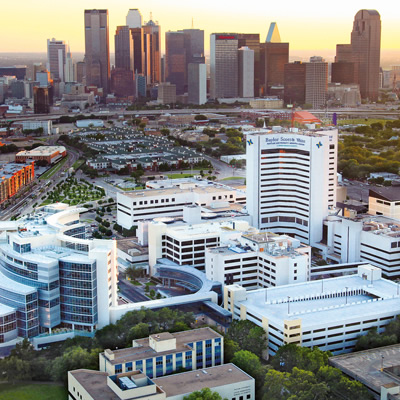
Baylor University Medical Center, part of Baylor Scott & White Health
3500 Gaston Ave , Dallas, TX, 75246

Baylor Scott & White Center for Esophageal Diseases - Sammons Center (Prearranged Appointment)
3410 Worth St Ste 235, Dallas, TX, 75246

Baylor Scott & White North Texas Colon and Rectal Associates - Dallas
3409 Worth St Ste 600, Dallas, TX, 75246
- Monday: 8:30 am - 5:00 pm
- Tuesday: 8:30 am - 5:00 pm
- Wednesday: 8:30 am - 5:00 pm
- Thursday: 8:30 am - 5:00 pm
- Friday: 8:30 am - 5:00 pm

Baylor Scott & White Center for Inflammatory Bowel Diseases
3409 Worth St Ste 600, Dallas, TX, 75246
- Monday: 8:30 am - 4:30 pm
- Tuesday: 8:30 am - 4:30 pm
- Wednesday: 8:30 am - 4:30 pm
- Thursday: 8:30 am - 4:30 pm
- Friday: 8:30 am - 4:30 pm
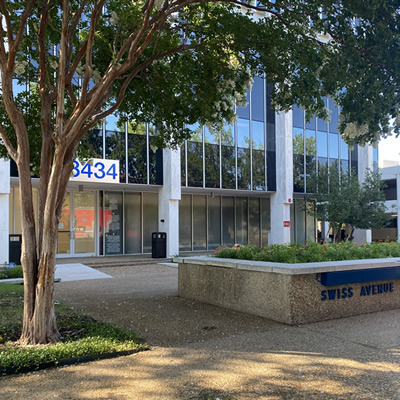
Baylor Scott & White Advanced Digestive Care
3434 Swiss Ave Ste 200, Dallas, TX, 75204
- Monday: 8:00 am - 5:00 pm
- Tuesday: 8:00 am - 5:00 pm
- Wednesday: 8:00 am - 5:00 pm
- Thursday: 8:00 am - 5:00 pm
- Friday: 8:00 am - 5:00 pm
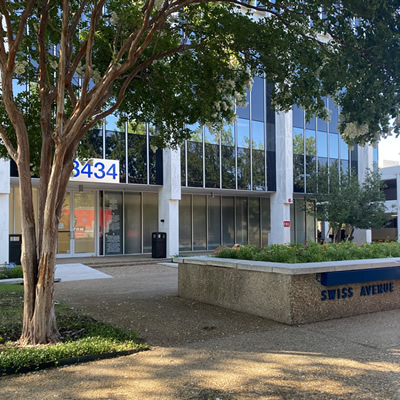
Baylor Scott & White Center for Esophageal Diseases
3434 Swiss Ave Ste 200, Dallas, TX, 75204
- Monday: 9:00 am - 5:00 pm
- Tuesday: 9:00 am - 5:00 pm
- Wednesday: 9:00 am - 5:00 pm
- Thursday: 9:00 am - 5:00 pm
- Friday: 9:00 am - 1:00 pm

Tuscan Surgery Center at Las Colinas
701 Tuscan Dr Ste 100, Irving, TX, 75039
- Monday: 6:00 am - 5:00 pm
- Tuesday: 6:00 am - 5:00 pm
- Wednesday: 6:00 am - 5:00 pm
- Thursday: 6:00 am - 5:00 pm
- Friday: 6:00 am - 5:00 pm

Lonestar Endoscopy Center - Flower Mound
1001 Surrey Ln , Flower Mound, TX, 75022
- Monday: 5:00 am - 3:00 pm
- Tuesday: 5:00 am - 3:00 pm
- Wednesday: 5:00 am - 3:00 pm
- Thursday: 5:00 am - 3:00 pm
- Friday: 5:00 am - 3:00 pm

Baylor Scott & White Medical Center - Irving
1901 N MacArthur Blvd , Irving, TX, 75061

Baylor Scott & White Medical Center - Grapevine
1650 W College St , Grapevine, TX, 76051

Lonestar Endoscopy Center - Southlake
515 S Nolen Dr , Southlake, TX, 76092
- Monday: 5:00 am - 3:00 pm
- Tuesday: 5:00 am - 3:00 pm
- Wednesday: 5:00 am - 3:00 pm
- Thursday: 5:00 am - 3:00 pm
- Friday: 5:00 am - 3:00 pm
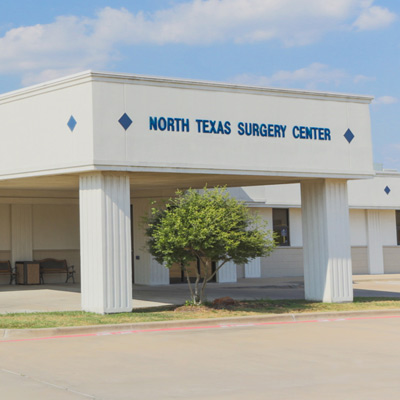
North Texas Surgery Center
7992 W Virginia Dr , Dallas, TX, 75237
- Monday: 6:00 am - 5:00 pm
- Tuesday: 6:00 am - 5:00 pm
- Wednesday: 6:00 am - 5:00 pm
- Thursday: 6:00 am - 5:00 pm
- Friday: 6:00 am - 5:00 pm
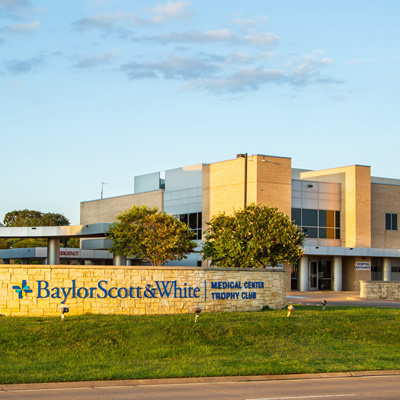
Baylor Scott & White Medical Center - Trophy Club
2850 E State Highway 114 , Trophy Club, TX, 76262

Lonestar Endoscopy Center - Keller
180 Bear Creek Pkwy , Keller, TX, 76248
- Monday: 5:00 am - 3:00 pm
- Tuesday: 5:00 am - 3:00 pm
- Wednesday: 5:00 am - 3:00 pm
- Thursday: 5:00 am - 3:00 pm
- Friday: 5:00 am - 3:00 pm

Baylor Scott & White Medical Center - Waxahachie
2400 N Interstate 35E , Waxahachie, TX, 75165
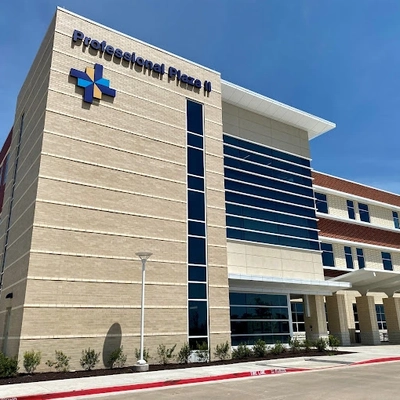
Baylor Scott & White Digestive Diseases - Waxahachie
2360 N Interstate 35E Ste 310 , Waxahachie, TX, 75165
- Monday: 8:00 am - 4:30 pm
- Tuesday: 8:00 am - 4:30 pm
- Wednesday: 8:00 am - 4:30 pm
- Thursday: 8:00 am - 4:30 pm
- Friday: 8:00 am - 4:30 pm
Frequently asked questions
-
How common is inflammatory bowel disease?
IBD affects an estimated 1.6 million people in the US. Although it can occur at any age, it is most often diagnosed in people between 15 and 35 years old.
-
Can coffee help treat inflammatory bowel disease?
Coffee doesn’t treat inflammatory bowel disease. While caffeine isn’t proven to make IBD worse, it can trigger symptoms like cramping or diarrhea in some people. If you notice it bothers you, try cutting back and talk with your doctor about what’s best for your symptoms.
-
Is IBD curable?
IBD isn’t curable, but it can be managed with medications, lifestyle changes and sometimes surgery. Treatment helps reduce inflammation, ease symptoms and prevent flares. Everyone responds differently, so working with your care team is key to finding the right plan for you.
-
Is inflammatory bowel disease autoimmune?
Yes, IBD is an autoimmune disease. The immune system mistakenly attacks the digestive tract, causing inflammation and damage. Crohn’s disease and ulcerative colitis are the two main types, both leading to symptoms like belly pain, diarrhea, weight loss and fatigue.
-
Can inflammatory bowel disease cause back pain?
Yes, IBD can cause back pain due to inflammation in the spine or joints. Conditions like ankylosing spondylitis or referred pain from the colon may be to blame. If you have IBD and back pain, talk to your doctor to find the cause and get the right treatment.
-
Does inflammatory bowel disease cause weight loss?
Yes, IBD can cause unintentional weight loss, especially during flare-ups. This happens due to reduced appetite, frequent diarrhea, poor nutrient absorption and increased calorie needs. If you’re losing weight without trying, talk to your doctor. A registered dietitian can also help manage nutrition during IBD.
-
Is inflammatory bowel disease hereditary?
Yes, inflammatory bowel disease can run in families. Certain genes may increase your risk of developing IBD, so having a family member with the condition raises your chances. However, IBD is caused by a mix of genetics and environmental factors like diet, gut bacteria and immune system function. Not everyone with a genetic risk will develop IBD, and the specific causes can differ from person to person.
